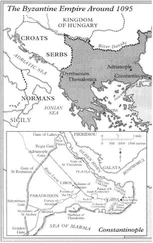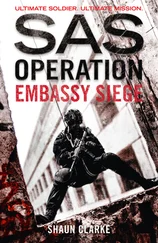Tom Harper - Siege of Heaven
Здесь есть возможность читать онлайн «Tom Harper - Siege of Heaven» весь текст электронной книги совершенно бесплатно (целиком полную версию без сокращений). В некоторых случаях можно слушать аудио, скачать через торрент в формате fb2 и присутствует краткое содержание. Жанр: Исторический детектив, на английском языке. Описание произведения, (предисловие) а так же отзывы посетителей доступны на портале библиотеки ЛибКат.
- Название:Siege of Heaven
- Автор:
- Жанр:
- Год:неизвестен
- ISBN:нет данных
- Рейтинг книги:5 / 5. Голосов: 1
-
Избранное:Добавить в избранное
- Отзывы:
-
Ваша оценка:
- 100
- 1
- 2
- 3
- 4
- 5
Siege of Heaven: краткое содержание, описание и аннотация
Предлагаем к чтению аннотацию, описание, краткое содержание или предисловие (зависит от того, что написал сам автор книги «Siege of Heaven»). Если вы не нашли необходимую информацию о книге — напишите в комментариях, мы постараемся отыскать её.
Siege of Heaven — читать онлайн бесплатно полную книгу (весь текст) целиком
Ниже представлен текст книги, разбитый по страницам. Система сохранения места последней прочитанной страницы, позволяет с удобством читать онлайн бесплатно книгу «Siege of Heaven», без необходимости каждый раз заново искать на чём Вы остановились. Поставьте закладку, и сможете в любой момент перейти на страницу, на которой закончили чтение.
Интервал:
Закладка:
‘No. Those were Nizariyya .’
It was the third time I had heard that name. ‘Who?’
‘Four years ago, when the old caliph died, his chosen heir was his eldest son, a prince named Nizar. But the vizier al-Afdal, whom we met, preferred the youngest son who had only recently come of age.’
‘He thought the younger son would be more easily governed?’
‘And the boy was married to al-Afdal’s sister. Al-Afdal installed the boy on the throne — the same throne where we saw him; Nizar fled to Alexandria, raised a revolt and proclaimed himself the true caliph.
‘Al-Afdal crushed the revolt easily enough, but it was only half a victory. To the Fatimids, the caliph is not just their king but also their high priest, the imam . There can only be one lawful imam at a time, and each must proceed from the last. They claim that the line stretches unbroken all the way from the heresiarch Mohammed. Supporting a caliph is not only a question of politics, but also of faith. And that is much harder to defeat.’
I considered this a moment. ‘What happened to Prince Nizar?’
‘He was captured and disappeared.’ Nikephoros grimaced. ‘No doubt in the same manner, perhaps the same place, as we would have done if we had not escaped. Al-Afdal hoped he would be forgotten; instead, his partisans believed that Prince Nizar had been concealed by their God until he could return in glory and vengeance. Naturally, that only redoubled their determination in their war against the caliph, though they were scattered and weak.’
‘And these partisans: they are the Nizariyya who rescued us?’
‘They have a hidden camp on the heights of that rock. When they saw that we had been pursued by the caliph’s troops, and fought against them, they spared us.’ He laughed. ‘They are also the caliph’s bitterest enemies.’
‘There seem to be many.’
‘And more now that he has offended Byzantium. When the Nizariyya realised we were Greek, they brought us to the monastery. The abbot did not say as much, but I guess there is an understanding between the monks and their neighbours.’
‘And Jorol?’
‘He fell from the cliff. They could not say whether it was the fall or the arrows that killed him. The monks buried him in their cemetery.’
We rode for two days, resting in the hottest hours of each day and the darkest hours of each night. Then, just before dusk on the second day, we came to a rise and saw a sight I had almost forgotten existed. Trees. Olive groves scattered the valley before us, and on the opposite ridge I could see a row of date plams swaying softly in the breeze. The same breeze blew across my face — not a parching desert wind, but a cool, wet wind flavoured with salt and fish.
Even with one arm tied to my side, I would have flogged my camel bare to gallop across that final stretch more quickly. Instead, we had to endure the painstaking pace of the pack animals as they picked their way among the crumbling stone terraces and irrigation channels in the valley. Up the far slope the ground became sandier — not the floury dust that coated the desert, but paler and coarser sand, which ground and crumbled underfoot.
We reached the line of date palms I had seen and looked out, onto a few low sand dunes, a flat beach and the sea beyond. If I had been standing I would have dropped to my knees to thank God; as it was, I stared at the water, unblinking, until my eyes wept from the salt breeze. To our left, I could see a small village of ramshackle huts thatched with palm leaves. Children played in the sand dunes, while women knotted broken nets and men caulked the boats they had hauled up to the top of the beach.
But those were not the only vessels. Drawn up at the water’s edge where waves rippled between their hulls lay five ships — much bigger than the fishing boats, with stout masts and high, curving prows. Their sails were furled and their oars stowed, but one flew a green banner showing a man with outstretched arms at her masthead. Seeing it, Aelfric gave a small cry; he leaped down from his camel, almost tumbling into the sand in his haste, and ran across the beach.
The men by the boats saw his approach and advanced to meet him. Some snatched up their swords, and several carried long axes. It did not deter Aelfric: he ran straight into the throng, shouting something I could not understand. The nearest man stared in astonishment — but it was the astonishment of recognition, not fear. He dropped his axe, spread his arms and wrapped Aelfric in an engulfing hug.
‘What. .?’ Nikephoros slipped out of his saddle and strode after the Varangian. For myself, I could not dismount unaided but kicked my camel forward, overtaking Nikephoros and reining in just behind Aelfric, who was now deep in conversation. I paused and listened. It was not a language I could speak or understand, but it was familiar to me nonetheless. I had heard it spoken among the Varangians many times.
Nikephoros pushed forward. ‘Who are these men?’
Aelfric broke off and turned to us, his eyes shining with excitement. A circle had begun to form around us as the men from the ships gathered. Looking at the assembled faces, I saw that many bore more than a passing resemblance to Aelfric: fair hair, light skin tanned red by wind and sun, and broad shoulders, which held their weapons easily.
Aelfric pointed to the man who stood at the centre of the throng. ‘This is Saewulf. These are his ships.’
The man called Saewulf stepped forward. His chestnut-coloured hair hung lank over his shoulders, tied back by a leather thong, while his beard was so thick it almost covered his mouth. He wore a green tunic and red leggings, and a dagger with a handle carved like a fish tucked into his braided belt. He stood with his legs far apart, his shoulders back and his chest out-thrust. I suppose it was a posture learned from many months balancing on a heaving deck, but the effect on land was vaguely obscene.
‘Is he English?’ I blurted out.
Aelfric nodded.
No doubt it would take many questions to establish why an English sailor and his fleet had made their camp on the shores of Fatimid Egypt. But at that moment, there was only one question that mattered, and Nikephoros asked it with his customary brusqueness.
‘Will he take us home?’
17
That evening, Saewulf’s men built fires on the beach and roasted goats. It was the first meat I had tasted since we fled the caliph’s palace and I forced myself to eat it cautiously, though I could have devoured it in a mouthful. I licked the fat from my fingers while Nikephoros and Aelfric talked with Saewulf. He had avoided Nikephoros’ question, insisting we could not speak before eating; and once we were seated around the fire he had asked to hear our entire story. Nikephoros told it, with some explanation from Aelfric in English but mostly in Greek, for Saewulf’s voyaging profession had taught him many languages. For all his barbaric appearance he made a charming host: he filled our cups with beer, cut us the choicest pieces of meat, and gave us fresh cloaks and tunics to replace the ill-fitting novices’ clothes we wore.
When Nikephoros had finished his account, he fixed his gaze on Saewulf. ‘That is our story. But why has an English seafarer beached his ships on these shores, at this time of year? You are a long way from safe harbours.’
‘So are you.’ Saewulf grinned; the goat-grease on his teeth gleamed in the firelight. ‘I came to fish.’
Nikephoros gestured towards the ships, though all we could see of them were high prows sweeping up into the darkness. ‘Are those fishing boats?’
‘For me — yes.’ Saewulf leaned forward. ‘I was in England when I heard that the Pope had preached his holy pilgrimage — ’
Читать дальшеИнтервал:
Закладка:
Похожие книги на «Siege of Heaven»
Представляем Вашему вниманию похожие книги на «Siege of Heaven» списком для выбора. Мы отобрали схожую по названию и смыслу литературу в надежде предоставить читателям больше вариантов отыскать новые, интересные, ещё непрочитанные произведения.
Обсуждение, отзывы о книге «Siege of Heaven» и просто собственные мнения читателей. Оставьте ваши комментарии, напишите, что Вы думаете о произведении, его смысле или главных героях. Укажите что конкретно понравилось, а что нет, и почему Вы так считаете.










